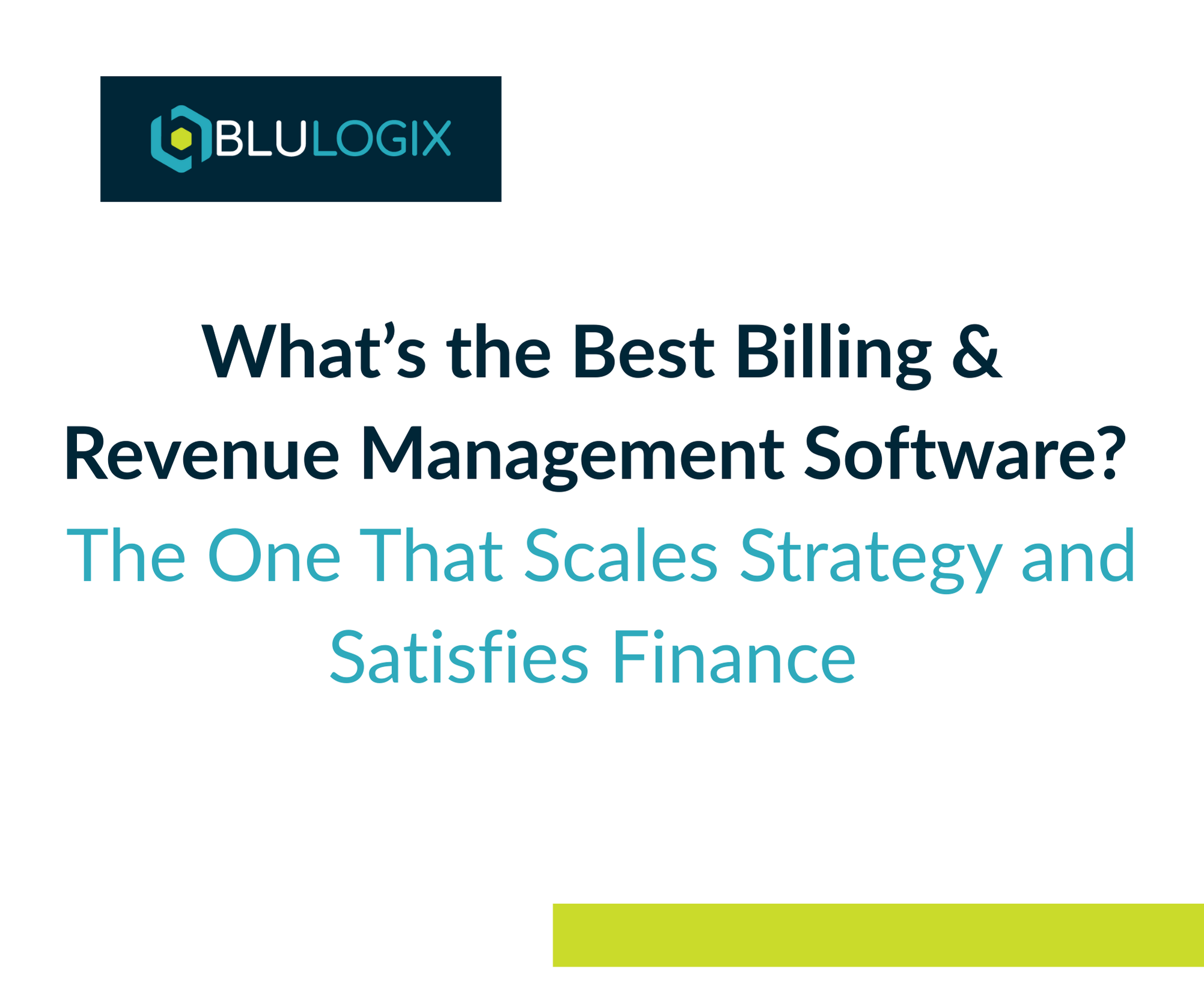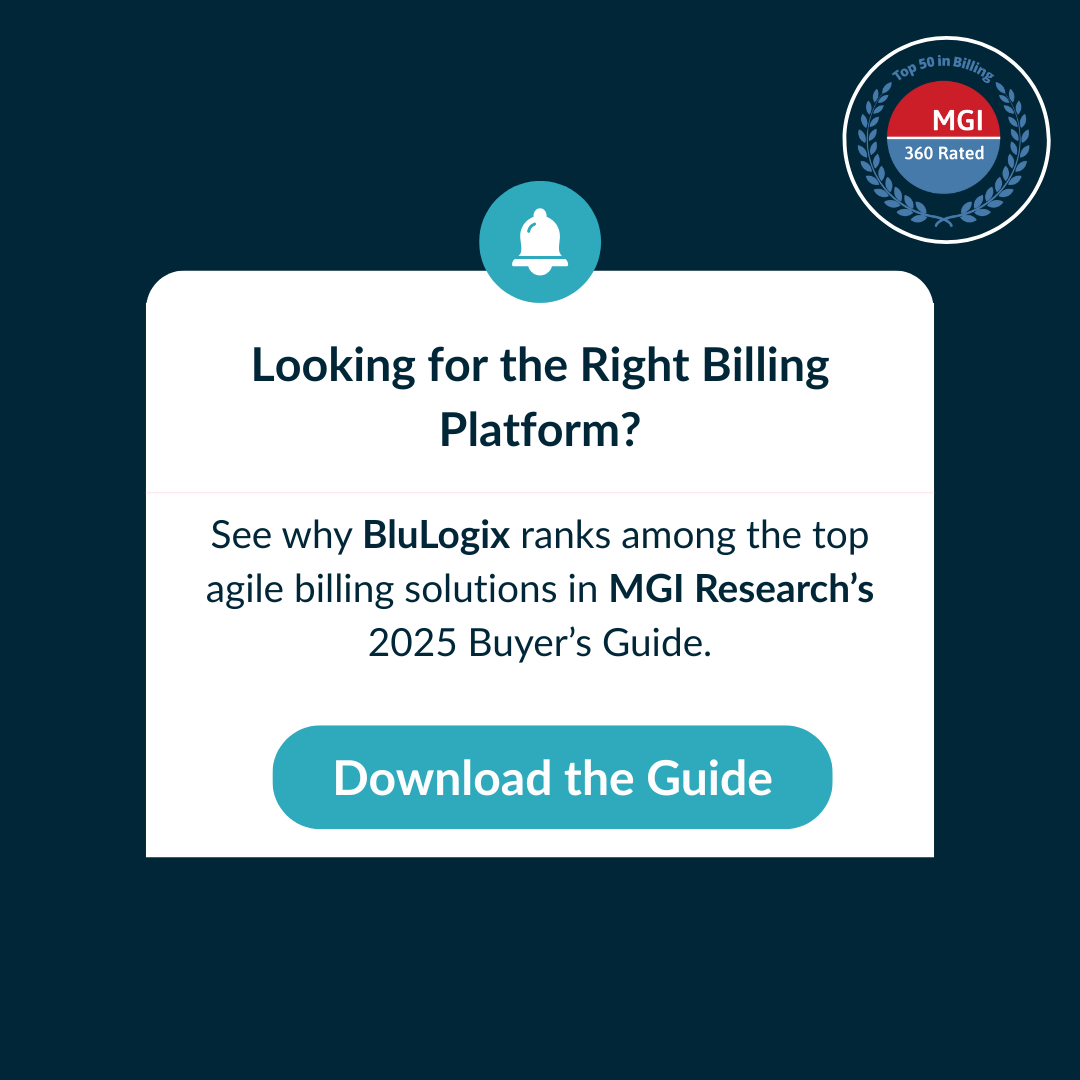Future-Proofing Your Business with Revenue Management
What is the role of revenue management in future-proofing a business, enabling proactive decisions and sustainable growth?
Ready to see how BluIQ can transform your billing process and help you achieve integrated, automated, and accurate complex monetization? Schedule a demo with a BluLogix billing expert today and take the first step towards revolutionizing your revenue management.
Future-Proofing Your Business with Revenue Management
In a constantly evolving business landscape, future-proofing has become essential for long-term success. Revenue management plays a crucial role in preparing businesses for the challenges and opportunities that lie ahead. By enabling proactive decision-making, optimizing financial performance, and building resilience, effective revenue management helps businesses achieve sustainable growth and remain competitive, regardless of market fluctuations or disruptions.
The Role of Revenue Management in Future-Proofing Your Business
Revenue management goes beyond simply tracking income. It encompasses a comprehensive approach to understanding, predicting, and optimizing revenue streams, while ensuring compliance with financial standards. Here are some key ways revenue management supports the future-proofing of a business:
- Proactive Decision-Making
Effective revenue management empowers businesses to make proactive decisions rather than reacting to financial challenges. By leveraging accurate projection, real-time data analysis, and customer profitability insights, businesses can anticipate shifts in market demand, adjust pricing, and capitalize on new opportunities. This proactive approach allows companies to navigate uncertainties with greater confidence and adaptability, ensuring they remain ahead of the competition.
- Enhanced Financial Visibility and Control
Integrating financial systems, such as General Ledger (GL) integration and ERP platforms, allows businesses to maintain seamless data synchronization. This enhances financial visibility and control, providing a unified view of revenue, costs, and adjustments. By understanding the financial health of the organization in real time, businesses can make informed decisions that are aligned with long-term growth objectives. Automation of revenue recognition and seamless data flow ensure that financial records are accurate, consistent, and compliant.
- Scalability Through Automation
Revenue management tools, such as automated revenue recognition and margin analysis, support scalability by simplifying complex processes and reducing manual tasks. Automation ensures that revenue is recognized accurately based on contracts, pricing models, and service delivery milestones, enabling businesses to scale without being bogged down by administrative bottlenecks. Automated systems also ensure that financial reporting is accurate, timely, and in compliance with regulatory standards, reducing the risk of errors and penalties.
- Real-Time Insights for Strategic Planning
The ability to access real-time insights into revenue, customer behavior, and costs is essential for future-proofing a business. Real-time data analysis provides businesses with the information they need to make strategic decisions, adapt to changes in the market, and identify new opportunities. This agility is crucial for sustaining growth and profitability in an increasingly competitive landscape.
- Focus on High-Value Relationships
Customer profitability analysis helps businesses identify and prioritize their most valuable customer segments. By focusing on high-value relationships, companies can enhance customer satisfaction, increase retention, and generate more revenue over time. Understanding which customers contribute most to profitability allows businesses to tailor their marketing, sales, and customer service efforts, ensuring that resources are used effectively to support sustainable growth.
Real-World Applications of Customer Profitability Analysis
Consider a telecommunications company that adopted automated revenue recognition and real-time customer profitability analysis to future-proof its business. By automating revenue recognition, the company ensured compliance with accounting standards, reduced manual errors, and improved the efficiency of its financial operations. Real-time customer profitability analysis enabled the company to identify its most valuable customers and develop tailored offers, resulting in increased retention and customer lifetime value.
Another example is an e-commerce business that used revenue projection to anticipate changes in customer demand during peak seasons. By leveraging historical data and predictive analytics, the company was able to optimize inventory, adjust pricing, and allocate resources effectively. This proactive approach allowed the company to capitalize on seasonal opportunities while minimizing the risk of stockouts or excess inventory.
Future-proofing your business requires a strategic focus on effective revenue management. By enabling proactive decision-making, providing real-time insights, automating complex processes, and focusing on high-value customer relationships, revenue management helps businesses build resilience and adaptability. In today’s rapidly changing business environment, the ability to anticipate challenges and seize opportunities is essential for sustainable growth and profitability.
For businesses looking to thrive amid uncertainty, revenue management is not just a financial practice—it’s a strategic tool for building a resilient, future-ready company. By embracing these principles, companies can position themselves to achieve long-term success, no matter what the future holds.
Ready to see how BluIQ can transform your billing process and help you achieve integrated, automated, and accurate complex monetization? Schedule a demo with a BluLogix billing expert today and take the first step towards revolutionizing your revenue management.
Learn more

What’s the Best Billing & Revenue Management Software? The One That Scales Strategy and Satisfies Finance

Features That Power Complex B2B Contracts — And How BluLogix Delivers Them



